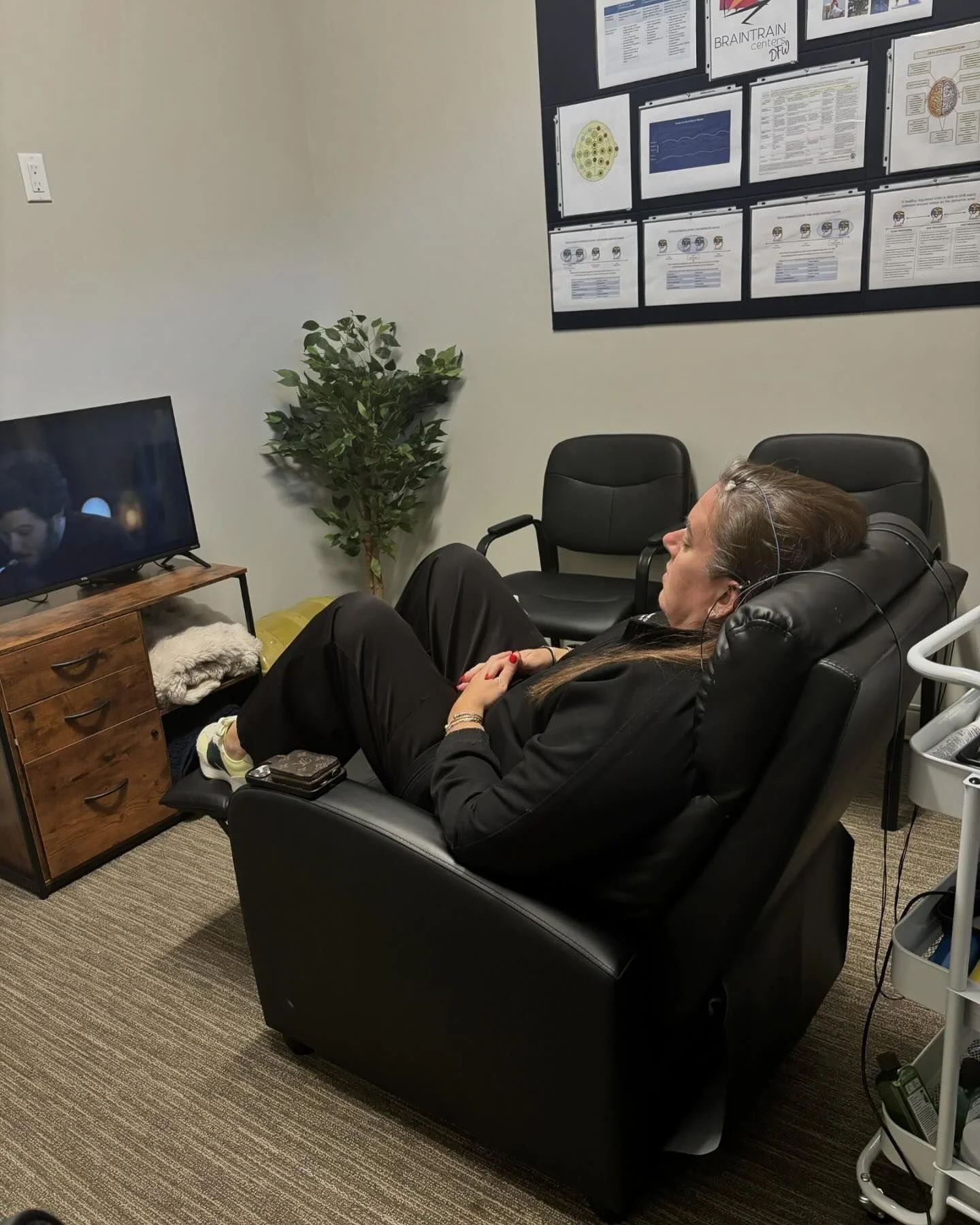Unwinding Your Mind During National Stress Awareness Day
Finding Stress Relief Without Medication
National Stress Awareness Day, celebrated annually on the first Wednesday of November, is a reminder of the impact that stress has on our daily lives and the importance of taking steps to manage it effectively.
As stress is a universal experience, it’s critical to understand its origins, symptoms, and impacts on both mental and physical health. This day offers an opportunity to increase awareness about stress, recognize its effects, and explore ways to address it, including non-invasive, drug-free options like neurofeedback.
The Importance of Recognizing Stress
Stress is a natural response to life’s demands, but when it becomes chronic, it can take a serious toll. Chronic stress occurs when there’s a continuous strain on the body and mind due to ongoing challenges. Over time, chronic stress can affect nearly every system in the body, potentially leading to heart disease, high blood pressure, diabetes, depression, anxiety, and more.
National Stress Awareness Day encourages everyone of all ages to recognize the sources of stress in their lives and learn how to address it effectively. In today’s fast-paced world, understanding the impact of stress is the first step toward better mental health and overall well-being.
Identifying the Causes of Stress
The causes of stress vary widely, as individuals respond to life’s challenges differently. Common sources of stress include:
Workplace Stress: Deadlines, heavy workloads, or workplace conflicts can be major sources of stress.
Financial Pressures: Money worries, especially in uncertain economic times, can elevate stress levels.
Health Concerns: Managing chronic illnesses or caring for a loved one can cause emotional strain.
Relationships: Family conflicts, breakups, or struggles with friends can be emotionally taxing.
Daily Life Challenges: From juggling responsibilities to dealing with unexpected events, everyday life can bring unexpected stress.
Identifying the sources of stress is essential, as it allows us to take proactive steps in managing it effectively. Recognizing stressors is the foundation for finding solutions that prevent stress from escalating into more serious health issues.
Symptoms and Effects of Chronic Stress
Stress manifests differently in each individual. Some people may experience physical symptoms, while others are impacted mentally or emotionally. Here are some common signs of stress:
Physical Symptoms: Headaches, muscle tension, fatigue, insomnia, and stomach issues.
Emotional Symptoms: Anxiety, irritability, anger, and a sense of overwhelm.
Behavioral Symptoms: Avoidance of responsibilities, overeating, or alcohol consumption.
Cognitive Symptoms: Difficulty concentrating, forgetfulness, and a decline in decision-making ability.
Long-term stress can weaken the immune system, making individuals more susceptible to illnesses. It’s also known to contribute to mental health disorders, including anxiety and depression, especially if stressors remain unresolved.
Techniques for Managing Stress
Effective stress management doesn’t happen overnight. It requires a combination of strategies that individuals can build into their daily lives to maintain well-being. Developing a personalized approach to stress management that includes a combination of these techniques is often the most effective way to handle stress. These approaches not only reduce stress but also help build resilience over time.
Here are some effective techniques:
Physical Activity: Exercise is a natural stress reliever, releasing endorphins and promoting better sleep.
Mindfulness and Meditation: Practicing mindfulness or meditating can help clear the mind and reduce anxiety.
Healthy Eating: A balanced diet can improve physical health and positively impact mental resilience.
Time Management: Prioritizing tasks and organizing one’s time can reduce the feeling of being overwhelmed.
Support Networks: Family, friends, and community groups provide essential emotional support.
Hobbies and Relaxation: Spending time on enjoyable activities can act as a counterbalance to stressors.
Neurofeedback is an Innovative Approach to Stress Management
One effective, non-invasive approach to managing stress is with neurofeedback. Neurofeedback, also known as EEG biofeedback, is a therapeutic technique that helps individuals train their brains to function more effectively. By monitoring brainwave activity and providing real-time feedback, neurofeedback aims to improve brain function and manage symptoms associated with anxiety, depression, and chronic stress.
Neurofeedback works by using sensors to monitor brainwave activity, which is displayed on a computer screen. When brainwave patterns associated with relaxation or focused attention are detected, the individual is rewarded with positive feedback, such as a pleasant sound or visual cue. This reinforcement encourages the brain to develop healthier patterns over time, which may lead to reduced symptoms of stress, improved focus, and emotional stability.
Benefits of Neurofeedback for Stress and Anxiety
Neurofeedback offers several benefits for those dealing with stress and anxiety, including:
Drug-Free Solution: Neurofeedback is a natural approach that doesn’t rely on medication, making it ideal for individuals seeking alternative treatments.
Long-Lasting Results: With regular sessions, neurofeedback can lead to lasting changes in brain function, promoting long-term resilience against stress.
Improved Sleep and Focus: Many users report enhanced concentration and better sleep, which are both crucial in managing stress.
Personalized Treatment: Each neurofeedback session is tailored to the individual’s unique brainwave patterns, allowing for a highly customized approach.
Neurofeedback addresses the root of stress rather than just the symptoms, which can be especially beneficial for people who have struggled to manage stress through conventional methods. It’s a holistic approach that focuses on improving overall brain health and function, ultimately leading to a greater sense of well-being.
Celebrating National Stress Awareness Day by Taking Control
National Stress Awareness Day serves as a reminder to reflect on the importance of stress management and the value of proactive mental health care. Consider using this day to evaluate your own stress levels and take steps to implement stress management strategies that work for you. By taking charge of stress, you can improve your quality of life and reduce the risk of long-term health issues.
Tips for Getting Started with Stress Management
Set Realistic Goals: Focus on manageable goals for reducing stress in specific areas.
Establish Healthy Boundaries: Learn to say no and protect your time for self-care.
Take Breaks: Even short breaks throughout the day can help reset your mind.
Practice Gratitude: Reflect on positive aspects of your day, which can improve mental outlook.
Seek Support When Needed: Don’t hesitate to talk to a counselor or therapist if stress becomes overwhelming.
This National Stress Awareness Day, take the first step toward a calmer mind and improved well-being. Contact BRAINTOPIA to learn how neurofeedback and other holistic therapies can support your journey to a stress-free, balanced life.






